speakers
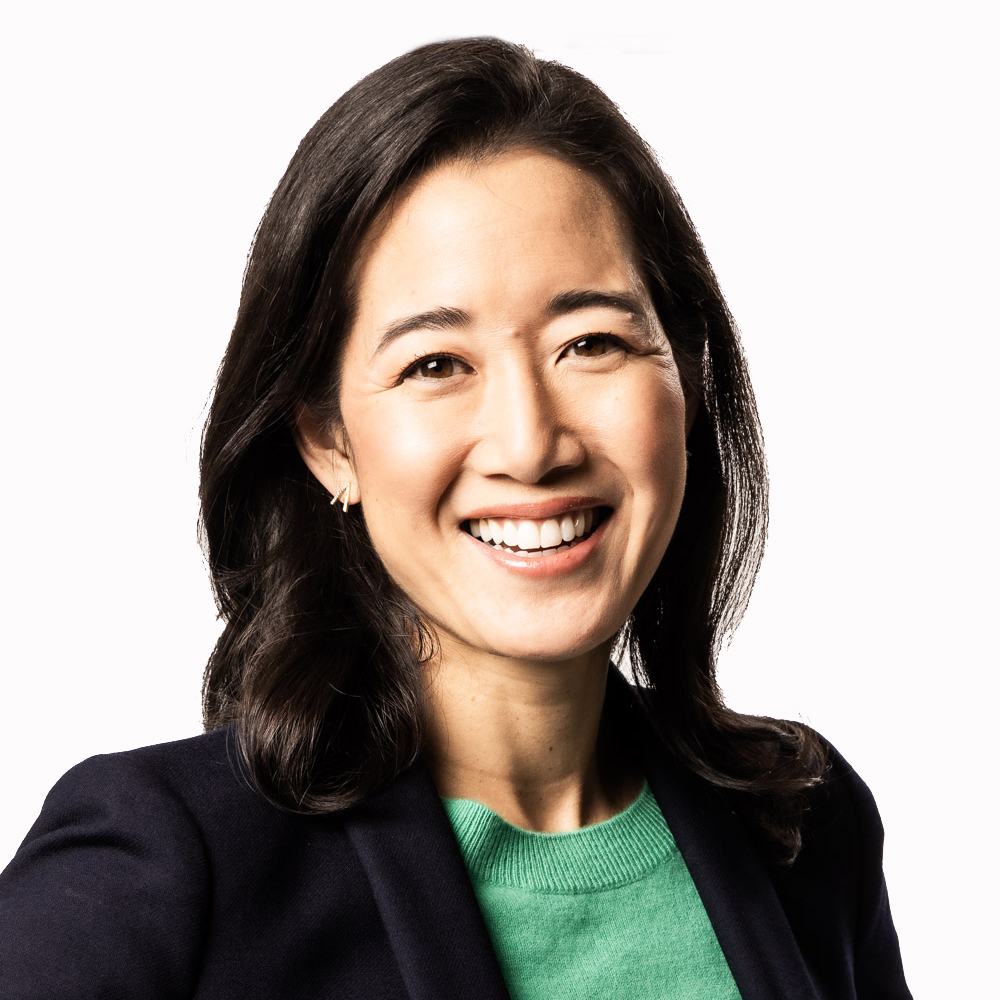
Melanie Nakagawa
Chief Sustainability Officer, Microsoft
Keynote speaker
As Microsoft’s Chief Sustainability Officer, Melanie Nakagawa leads the company’s commitments to become carbon-negative, water-positive, and zero-waste by 2030. She brings nearly two decades of experience at the nexus of policy, business, and technology, most recently serving as Special Assistant to the President and Senior Director for Climate and Energy on the National Security Council at the White House. Prior to the White House, Nakagawa helped launch Princeville Capital’s inaugural global growth equity climate technology fund, investing in companies delivering transformative solutions to climate change. She also served as a strategic advisor to Secretary of State John Kerry on climate change and environmental issues and held roles in the U.S. Senate and with the Natural Resources Defense Council. Nakagawa holds a J.D. and M.A. from American University and an A.B. from Brown University.
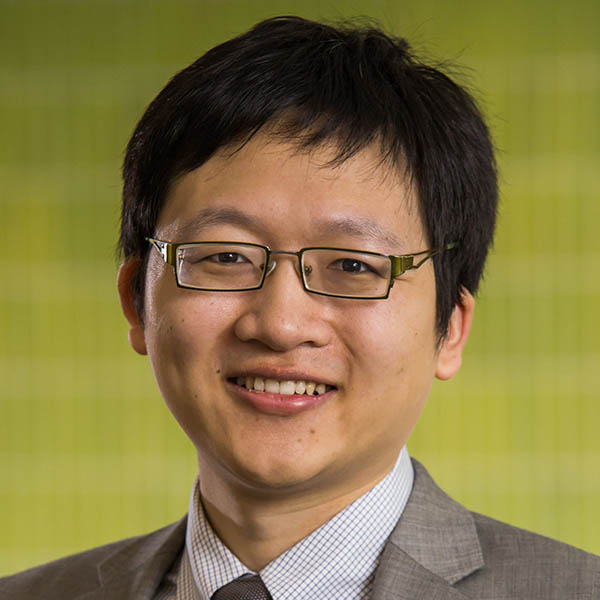
Minjie Chen
Associate Professor of Electrical and Computer Engineering and the Andlinger Center for Energy and the Environment, Princeton University
Minjie Chen is an associate professor of electrical and computer engineering and the Andlinger Center for Energy and the Environment at Princeton University. His research interests include modeling, design, and application of high-performance power electronics. Chen is a recipient of the IEEE PELS Richard M. Bass Outstanding Young Power Electronics Engineer Award; Princeton SEAS E. Lawrence Keyes, Jr./Emerson Electric Co. Junior Faculty Award; Princeton Innovation Award; NSF CAREER Award; seven IEEE Transactions on Power Electronics Prize Paper Awards; MIT EECS D. N. Chorafas Ph.D. Thesis Award; and numerous conference paper awards from COMPEL, ICRA, IROS, ECCE, APEC, 3D-PEIM, and OCP. He has received multiple commendations for outstanding teaching from the Princeton School of Engineering and Applied Science.
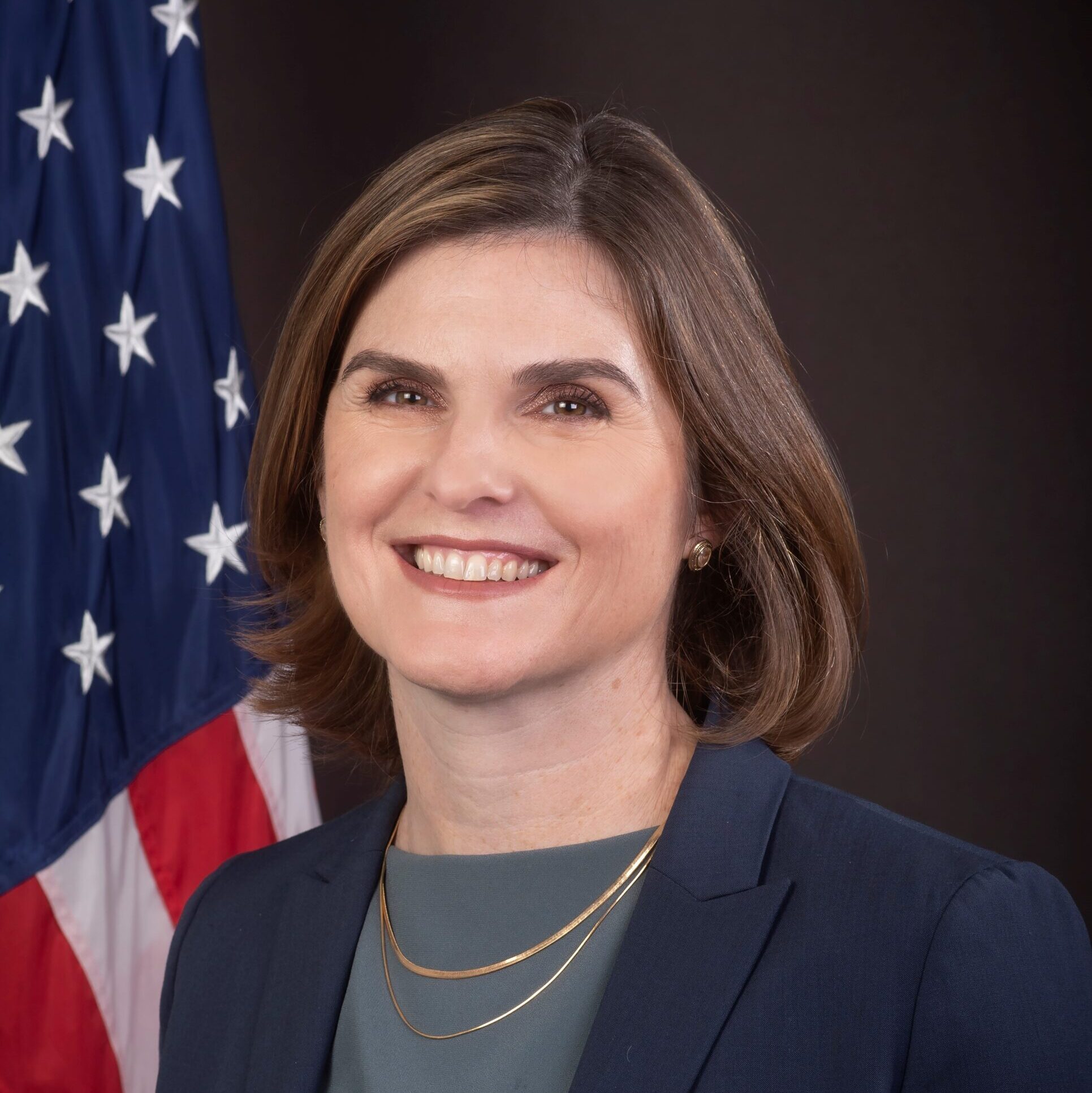
Allison Clements
Former Commissioner, Federal Energy Regulatory Commission
Allison Clements joined the Federal Energy Regulatory Commission in December 2020 following a range of public and private sector experience in energy law and grid modernization policy. Before her commissioner role, she worked at Energy Foundation, Goodgrid LLC, and the Natural Resources Defense Council. She began her legal career in private practice. Her clients have included utilities, independent power producers, developers, lenders, nonprofits, and philanthropies throughout her career. Clements has also served as a federal energy expert in several capacities, including as a member of a National Academies of Sciences committee on grid resilience and as a clinical visiting lecturer at Yale Law School. She holds a B.Sc. from the University of Michigan and a J.D. from The George Washington University Law School.
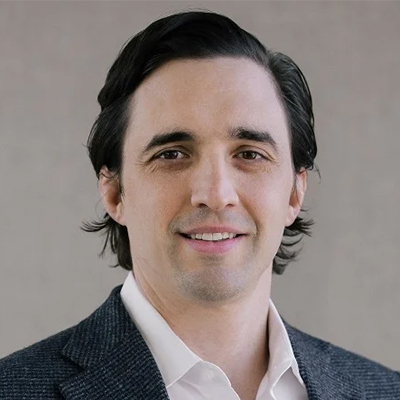
Matt DeNichilo
Partner, ECP
Matt DeNichilo is a partner at ECP and has been with the firm since 2008. He is a member of ECP’s Partnership, Investment, and Valuation Committees. DeNichilo currently serves on the boards of Shenandoah Telecommunications, Triple Oak Power, and Terra-Gen, LLC. Previously, he served on the boards of PLH Group, Inc., and Sunnova Energy Corp. Before Realization, DeNichilo served on the boards of Broad River Holdings, LLC, Empire Gen Holdings, Inc., Brayton Point Power, LLC, EquiPower Resources Corp., and Sunnova Energy Corp. He has also played a critical role in ECP’s transaction with Dynegy Inc. Before joining ECP, DeNichilo worked at JP Morgan in the Energy Investment Banking Group. While at JP Morgan, he focused on leveraged finance and mergers and acquisition transactions among independent power producers. DeNichilo received a B.S.E. in Operations Research and Financial Engineering from Princeton University.
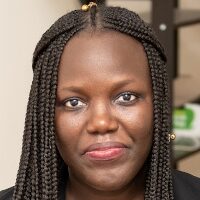
Adji Bousso Dieng
Assistant Professor of Computer Science, Princeton University; Research Scientist, Google AI; Founder and President, The Africa I Know
Adji Bousso Dieng is an assistant arofessor of Computer Science at Princeton University where she leads Vertaix on research at the intersection of artificial intelligence and the natural sciences. She is affiliated with the Chemical and Biological Engineering Department, the Princeton Materials Institute, the Princeton Quantum Initiative, the Andlinger Center for Energy and the Environment, and the High Meadows Environmental Institute (HMEI) at Princeton. She is also a research scientist at Google AI and founder and President of the nonprofit, The Africa I Know. She has been recently named an Outstanding Recent Alumni by Columbia University’s Grad School of Arts and Sciences, an AI2050 Early Career Fellow by Schmidt Futures, and the Annie T. Randall Innovator of 2022 for her research and advocacy by the American Statistical Association. She received her Ph.D. from Columbia University. Her doctoral work received many recognitions, including a Google Ph.D. Fellowship in Machine Learning, a rising star in Machine Learning nomination by the University of Maryland, and a Savage Award from the International Society for Bayesian Analysis, for her doctoral thesis. Dieng’s research has been covered in media such as the New Scientist and TechXplore. She hails from Kaolack, Senegal.

Tassos Golnas
Technology Manager, Solar Energy Technology Office, U.S. Department of Energy (DOE)
Tassos Golnas is a technology manager at the DOE Solar Energy Technologies Office where he has overseen federally funded projects spanning the areas of solar resource assessment and forecasting, grid integration of distributed solar, photovoltaic system modeling, and operational optimization. His interests include open-access data and open-source software, and he has engaged in and led numerous AI-related activities within DOE. He began his solar career at SunEdison in 2008 where he led projects and teams in the areas of technology evaluation, system reliability, and performance reporting and optimization. Before SunEdison, he worked in the semiconductor equipment and photonics industries as an R&D manager and engineer. Golnas is an IEEE Member, holds a Ph.D. in materials science and engineering from Stanford University, a B.Sc. in physics from Aristotle University of Thessaloniki, and has lived in Maryland since 2007.

Tom Gray
Senior Director Circuits Research, Nvidia
Tom Gray received a B.S. degree in computer science and mathematics from Mississippi College and an M.S. and Ph.D. in computer engineering from North Carolina State University. He began his career as an Advisory Engineer with IBM working on transceiver design for communication systems. He later became a Senior Staff Design Engineer with the Analog/Mixed Signal Design Group, Cadence Design Systems, working on SerDes system architecture. From 2004 to 2010, he was a Consultant Design Engineer with Artisan/ARM and Technical Lead of SerDes architecture and design. In 2010, he joined Nethra Imaging as a System Architect. His work experience includes digital signal processing design and CMOS implementation of DSP blocks as well as high-speed serial link communication systems, architectures, and implementation. In 2011, he joined NVIDIA, Inc., where he is currently Senior Director of Circuit Research, leading activities related to high-speed electrical signaling, photonics, power delivery, security circuits, low-energy and resilient memories, circuits for machine learning, and variation-tolerant clocking and power delivery.
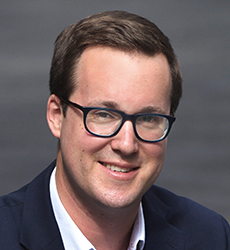
Jesse Jenkins
Assistant Professor of Mechanical and Aerospace Engineering and the Andlinger Center for Energy and the Environment, Princeton University
Jenkins is an assistant professor and macro-scale energy systems engineer at Princeton University with a joint appointment in the Department of Mechanical and Aerospace Engineering and the Andlinger Center for Energy and Environment. He leads the Princeton ZERO Lab (Zero-carbon Energy systems Research and Optimization Laboratory), which focuses on improving and applying optimization-based energy systems models to evaluate and optimize low-carbon energy technologies, guide investment and research in innovative energy technologies, and generate insights to improve energy and climate policy and planning decisions. Jenkins earned a Ph.D. and M.S. from MIT, worked previously as a postdoctoral fellow at the Harvard Kennedy School, and spent six years as an energy and climate policy analyst. Jenkins recently served on the National Academies of Science Engineering and Medicine expert committee on Accelerating Decarbonization of the U.S. Energy System, was a principal investigator and lead author of Princeton’s landmark Net-Zero America study, and leads the REPEAT Project (repeatproject.org), which provides regular, timely, and independent environmental and economic evaluation of federal energy and climate policies as they are proposed and enacted. Jenkins has delivered invited testimony to multiple Congressional committees and his research is regularly featured in major media outlets. He regularly provides technical analysis and policy advice for non-profit organizations, policymakers, investors, and early-stage technology ventures working to accelerate the deployment of clean energy, and was named to the TIME100 Next list as a rising leader working to shape a better future for the planet.

Mark Johnson
Director, Center for Advanced Manufacturing; Thomas F. Hash Endowed Chair in Sustainable Development; Professor of Materials Science and Engineering, Clemson University
Mark Johnson joined Clemson University in 2018 with the charge to develop the Clemson Center for Advanced Manufacturing’s research and education programs, while serving as a conduit that connects manufacturers, faculty, students and other resources. With a focus on advanced manufacturing, Johnson looks at a variety of topics from robotics and virtual reality to artificial intelligence and lightweight materials. His primary research has focused on crystal growth and device fabrication of compound semiconductor materials with electronic and photonic applications. He also focuses on the development of new energy-efficient manufacturing processes and materials technologies, particularly those enabling energy applications. By understanding all facets of manufacturing, he seeks to bring together the next generation of students with the state’s manufacturing companies, connecting those students with real problems to solve during their education. In addition to his role with the Center, Johnson also serves as the Thomas F. Hash Endowed Chair in Sustainable Development. He is the former director of DOE’s Advanced Manufacturing Office (AMO) in the Office of Energy Efficiency and Renewable Energy (EERE), and he previously served as a program director in the Advanced Research Projects Agency–Energy (ARPA-E). Prior to Johnson’s work in higher education and government, he helped lead several successful startup businesses focused on semiconductor materials and device technology.
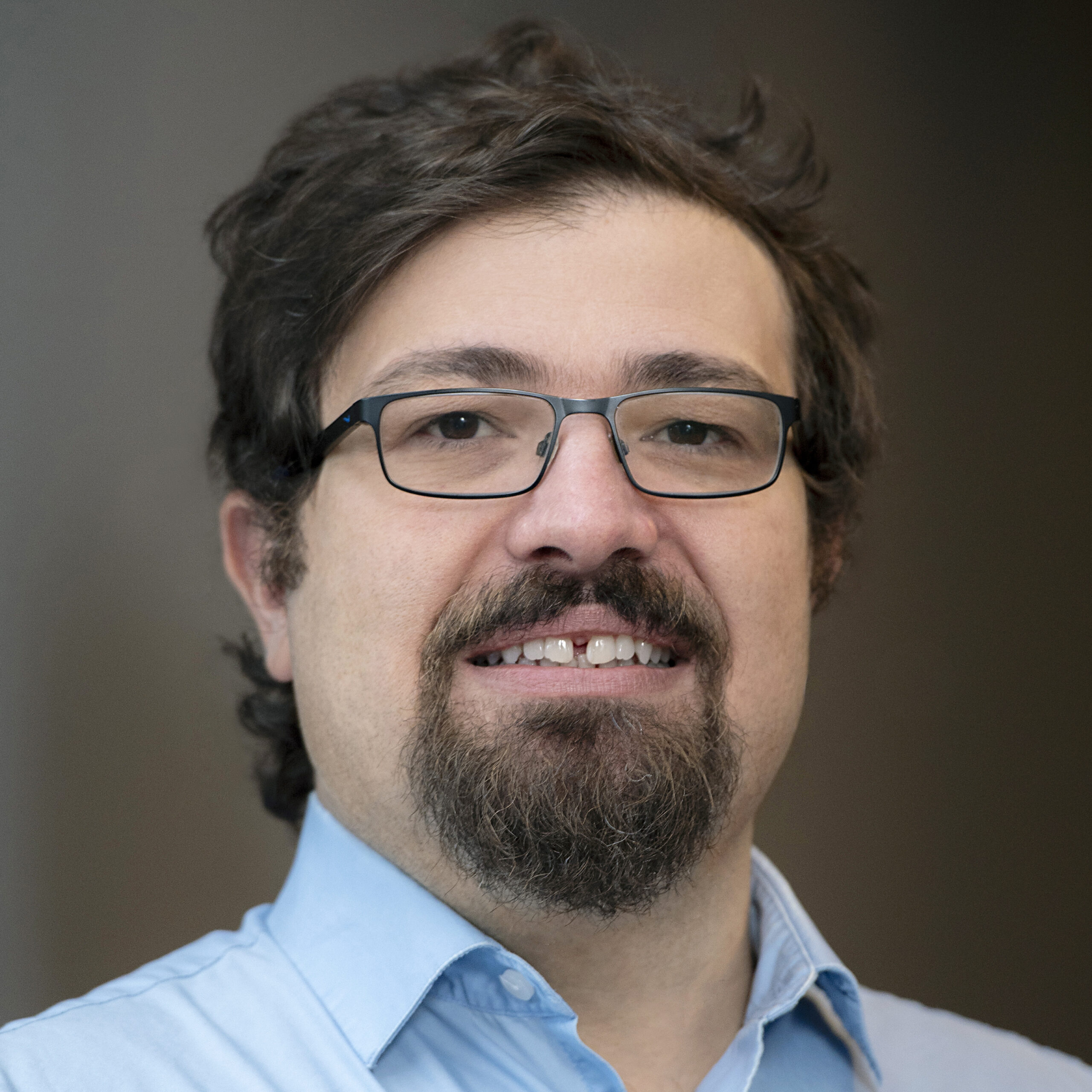
Egemen Kolemen
Associate Professor of Mechanical and Aerospace Engineering and the Andlinger Center for Energy and the Environment, Princeton University; Staff Research Physicist, Princeton Plasma Physics Laboratory (PPPL)
Egemen Kolemen is an associate professor of mechanical and aerospace engineering and the Andlinger Center for Energy and the Environment at Princeton University, as well as a staff research physicist at PPPL. He is also the director of the Minor in Sustainable Energy at the Andlinger Center for Energy and the Environment. Kolemen is the recipient of the David J. Rose Excellence in Fusion Engineering Award and the American Nuclear Society’s Technical Accomplishment Award, and he is an ITER scientist fellow. His research combines engineering and physics analysis to enable economically feasible fusion reactors. He currently leads research on machine learning, real-time diagnostics, and control at fusion facilities including KSTAR, NSTX-U, and DIII-D. Kolemen also directs liquid metal divertor and low-temperature diagnostics labs. On the theoretical side, his group develops software for stellarator optimization and economic analysis of fusion reactors.
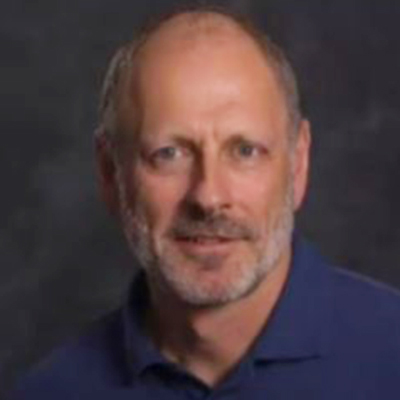
Stephen Kosonocky
Senior Fellow, AMD
Stephen Kosonocky received his B.S., M.S., and Ph.D. from Rutgers University, in electrical engineering. Currently, he is part of the AMD Power Competitive Team and the AMD Central Technology Team where he helps to drive research and development to improve power efficiency across all AMD products, including servers, machine intelligence, client APUs, and graphic processors, focusing on advanced clocking, regulation and power management and power delivery techniques and circuits. He has published over 72 publications and workshops and over 80 U.S., and international patents. He is Executive Chair of the Symposium on VLSI Technology and Circuits IEEE committee.
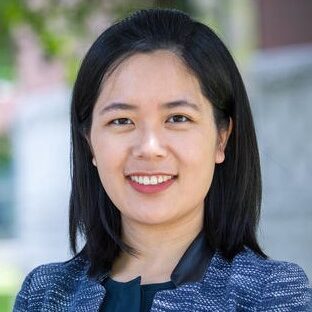
Na (Lina) Li
Winokur Family Professor of Electrical Engineering and Applied Mathematics, Harvard University
Na Li is a Winokur Family Professor of Electrical Engineering and Applied Mathematics at Harvard University. She received her Bachelor’s degree in mathematics from Zhejiang University in 2007 and her Ph.D. in control and dynamical systems from California Institute of Technology in 2013. She was a postdoctoral associate at the Massachusetts Institute of Technology from 2013-2014. She has held a variety of short-term visiting appointments including the Simons Institute for the Theory of Computing, MIT, and Google Brain. Her research lies in the control, learning, and optimization of networked systems, including theory development, algorithm design, and applications to real-world cyber-physical societal system. She has been an associate editor for IEEE Transactions on Automatic Control, Systems & Control Letters, and IEEE Control Systems Letters, and served on the organizing committee for a few conferences. She received the NSF career award, AFSOR Young Investigator Award, ONR Young Investigator Award, Donald P. Eckman Award, McDonald Mentoring Award, IFAC Distinguished Lecture, and IFAC Manfred Thoma Medal, along with other awards.
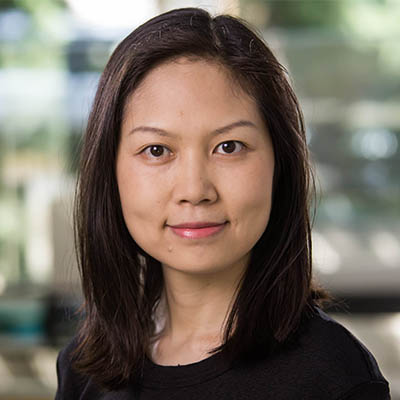
Ning Lin
Professor of Civil and Environmental Engineering, Princeton University
Ning Lin is a professor of civil and environmental engineering at Princeton University. Lin’s research areas include natural hazards and risk analysis, wind engineering, coastal engineering, and climate change impact and adaptation. Her current primary focus is hurricane risk analysis. She integrates science, engineering, and policy to study hurricane-related weather extremes (strong winds, heavy rainfall, and storm surges), how they change with changing climate, and how their impact on society can be better mitigated. Lin has published in high-impact journals including Science, Nature Climate Change, and Proceedings of the National Academy of Sciences. She is a recipient of CAREER award from National Science Foundation and Natural Hazards Early Career Award and Global Environmental Change Early Career Award from American Geophysical Union (AGU). Lin received her Ph.D. in Civil and environmental engineering from Princeton University in 2010. She also received a certificate in science, technology, and environmental policy in 2010 from Princeton. Before rejoining Princeton as an assistant professor in 2012, she conducted research in the Department of Earth, Atmospheric and Planetary Sciences at MIT as a NOAA Climate and Global Change Postdoctoral Fellow.
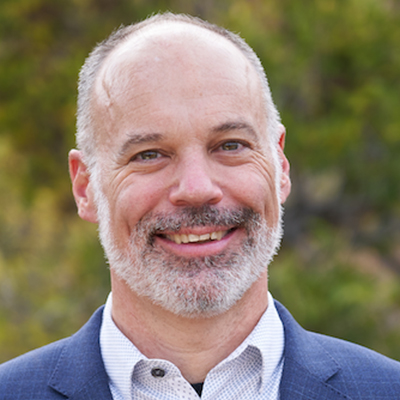
Reed Maxwell
William and Edna Macaleer Professor of Engineering and Applied Science; Professor of Civil and Environmental Engineering and the High Meadows Environmental Institute; Director of the Integrated GroundWater Modeling Center (IGWMC), Princeton University
Reed Maxwell is the William and Edna Macaleer Professor of Engineering and Applied Science in Civil and Environmental Engineering (CEE) and the High Meadows Environmental Institute (HMEI) at Princeton University. He also directs the Integrated GroundWater Modeling Center (IGWMC). His research interests are focused on understanding connections within the hydrologic cycle and how they relate to water quantity and quality under anthropogenic stresses. He was the 2020 Henry Darcy Distinguished Lecturer, an elected Fellow of the American Geophysical Union, the 2018 Boussinesq Lecturer, and the 2017 School of Mines Research Award recipient. He has authored more than 170 peer-reviewed journal articles and teaches classes on hydrology and fluid mechanics. Over his career he has collaborated with and mentored 16 Ph.D. students and 19 MS thesis students. Prior to coming to Princeton, he was faculty at the Colorado School of Mines and a postdoc and then staff in the Hydrologic Sciences group at Lawrence Livermore National Laboratory. He holds a Ph.D. degree in Environmental Water Resources from the Civil and Environmental Engineering Department at the University of California, Berkeley.
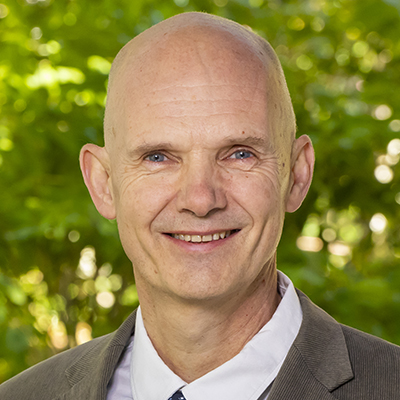
Iain McCulloch
Director, Andlinger Center for Energy and the Environment; Gerhard R. Andlinger Professor in Energy and the Environment; Professor of Electrical and Computer Engineering and the Andlinger Center for Energy and the Environment, Princeton University
Iain McCulloch is the director of the Andlinger Center for Energy and the Environment, the Gerhard. R. Andlinger Professor in Energy and the Environment, and a professor of electrical and computer engineering at Princeton University. He also holds a visiting professor position in the Department of Chemistry at the University of Oxford. McCulloch previously held joint appointments as a professor of chemical science and director of KAUST Solar Center at KAUST, as well as a chair in polymer materials in the Department of Chemistry at Imperial College. Before joining academia, he spent 18 years managing industrial research groups at Hoechst in the U.S. and Merck in the U.K. He is a fellow of the Royal Society, the Royal Society of Chemistry, the European Academy of Sciences, and a member of Academia Europaea. He is the recipient of the 2022 Royal Society Armourers and Brasiers Prize, 2020 Blaise Pascal Medal for Materials Science, Royal Society of Chemistry 2020 Interdisciplinary Prize, 2014 Tilden Medal for Advances in Chemistry, and 2009 Creativity in Industry Prize. His interests are in the design and investigation of organic semiconducting materials.
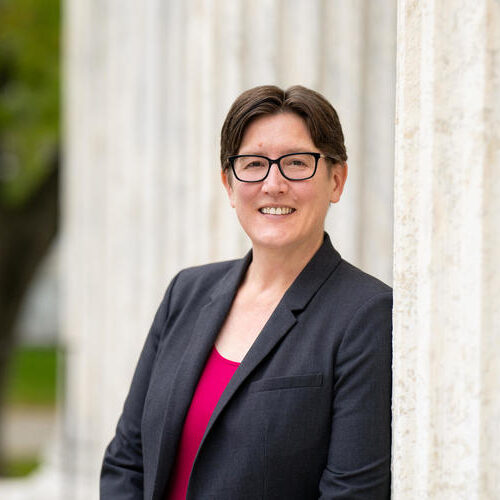
Jennifer Rexford
Provost, Office of the Provost; Gordon Y. S. Wu Professor in Engineering; Professor of Computer Science, Princeton University
As provost, Jennifer Rexford ensures the continued vitality of Princeton’s academic mission and its long-term financial security. Rexford is the Gordon Y.S. Wu Professor in Engineering and a 1991 graduate of Princeton with a B.S.E. in electrical engineering. After completing her Ph.D. in electrical engineering and computer science at the University of Michigan in 1996, she worked as a researcher at AT&T Labs for more than eight years, creating techniques deployed in the company’s backbone networks. Following her years in industry, Rexford joined Princeton’s Department of Computer Science as a full professor in 2005. She received her named professorship in 2012, became acting chair of computer science in 2013, and was named chair in 2015. Her research focuses on computer networking, with the larger goal of making the Internet worthy of society’s trust. She is an affiliated faculty member in electrical and computer engineering, operations research and financial engineering, applied and computational mathematics, gender and sexuality studies, Center for Information Technology Policy, High Meadows Environmental Institute and Princeton Institute for Computational Science and Engineering. Rexford is a member of the National Academy of Sciences, American Academy of Arts and Sciences, and National Academy of Engineering.
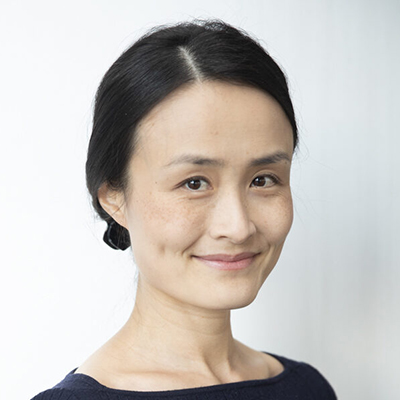
Lucia Tian
Head of Clean Energy and Decarbonization Technologies, Google
Lucia Tian leads Google’s team responsible for developing and scaling advanced clean technologies across energy and carbon removals, through strategic investments, off-take, and partnerships, to achieve Google’s global 24/7 carbon-free energy and net zero goals. Prior to Google, Lucia served as Senior Advisor to the U.S. Department of Energy’s Chief Commercialization Officer, and as Chief Strategist for the Loan Programs Office, driving the Pathways to Commercial Liftoff effort to inform DOE’s IIJA and IRA investments. Previously, Lucia built and led strategy & analytics functions across public, private, and non-profit organizations, including at the ACLU and McKinsey & Co. She holds a dual B.S. in electrical engineering and computer science and B.S. in economics from MIT, and an M.A. in economics from Harvard.
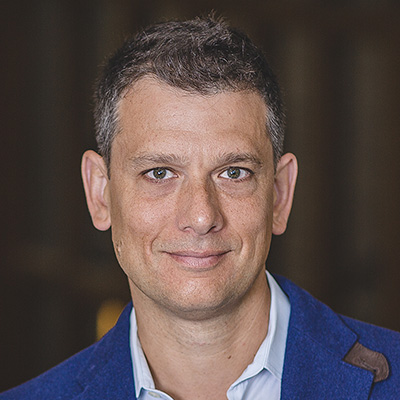
Gabriel Vecchi
Director, the High Meadows Environmental Institute; Knox Taylor Professor of Geosciences and Professor in the High Meadows Environmental Institute; Deputy Director, Cooperative Institute for Modeling the Earth System (CIMES), Princeton University
Gabriel Vecchi is the Knox Taylor Professor of Geosciences and a professor in the High Meadows Environmental Institute at Princeton University. Since July 2021, he has served as director of the High Meadows Environmental Institute. Vecchi is also the deputy director of the Cooperative Institute for Modeling the Earth System (CIMES), a joint institute between Princeton University and NOAA, and served from 2019 to 2021 as its director. Before coming to Princeton University in 2017, he was a research oceanographer and the head of the Climate Variations and Predictability Group at the NOAA Geophysical Fluid Dynamics Laboratory (GFDL) in Princeton, where he had been since 2003. His research focuses on understanding short- and long-term changes to the oceans and atmosphere, including the monsoons, El Niño, and the impact of climate on tropical cyclones, weather extremes, and global patterns of rainfall and drought.
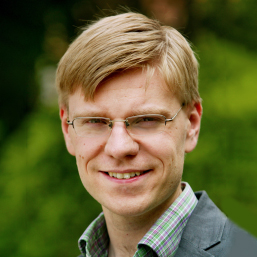
David Wentzlaff
Professor of Electrical and Computer Engineering, Princeton University
David Wentzlaff is a professor of electrical and computer engineering at Princeton University. Before joining Princeton, he completed his Ph.D. and S.M. at the Massachusetts Institute of Technology (MIT) and was lead architect and founder of Tilera Corporation, a multicore chip manufacturer. Before Tilera, he was one of the architects of the Raw Processor at MIT and designed the Raw on-chip networks. Wentzlaff founded the MIT Factored Operating System (fos) project, which focused on designing scalable operating systems for thousand-core multicores and cloud computers. His work has been awarded the NSF CAREER award, DARPA Young Faculty Award, AFOSR Young Investigator Prize, and Princeton E. Lawrence Keyes Faculty Advancement Award. Wentzlaff taught the world’s first massive open online course (MOOC) in computer architecture, offered through Coursera. David’s current research interests include computer architecture for a post-Moore’s Law world, how to create manycore microprocessors customized specifically for future data centers and Cloud computing environments, how to create processors for large language models (LLMs), and how to reduce the impact of computing on the environment by optimizing computer architecture for fully biodegradable substrates. He enjoys hiking and mountaineering when not designing cutting edge microprocessors.
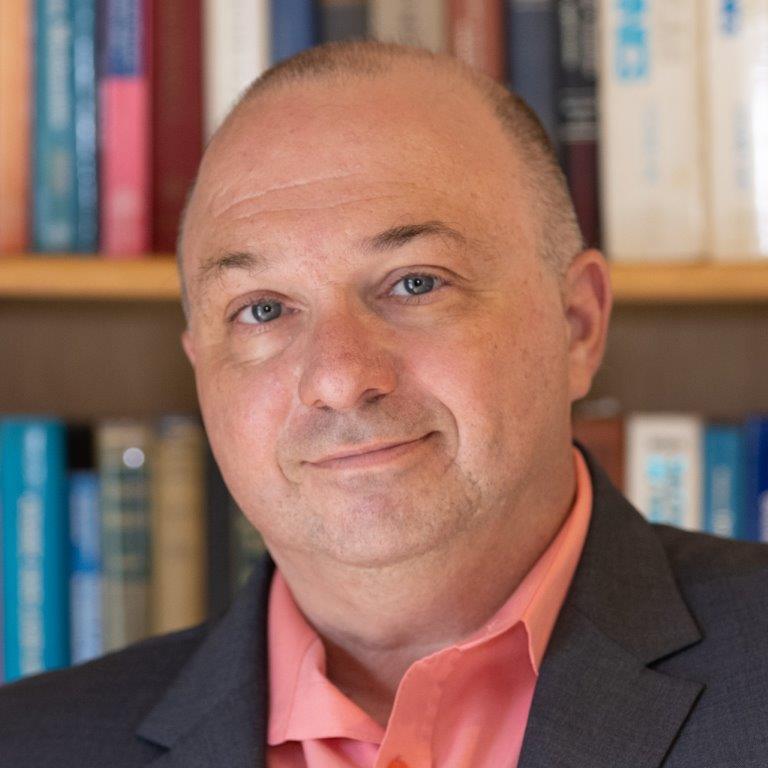
Chris White
President, NEC Laboratories America, Inc.
Chris White is the President of NEC Laboratories America, where he leads a team of world-class researchers focusing on diverse topics including sensing, networking, and machine learning-based understanding. Before joining NEC, he spent 22 years working at Bell Labs, where he led the Algorithms, Analytics, Augmented Intelligence and Devices (AAAID) research lab. He joined Bell Labs in 1997 after graduating with a Ph.D. in theoretical quantum chemistry from the University of California in Berkeley, California. His research interests include the development of computational models and methods for the simulation and control of interesting physical and digital systems. This has included work in areas ranging from linear scaling quantum chemistry simulations to the design of new optical devices, to the global control of transparent optical mesh networks, and to understanding and facilitating the propagation of ideas in organizations. In addition to the management of a team of world-class researchers, White’s current work focuses on the creation of assisted thinking tools that leverage structural similarity in data to augment human intelligence.
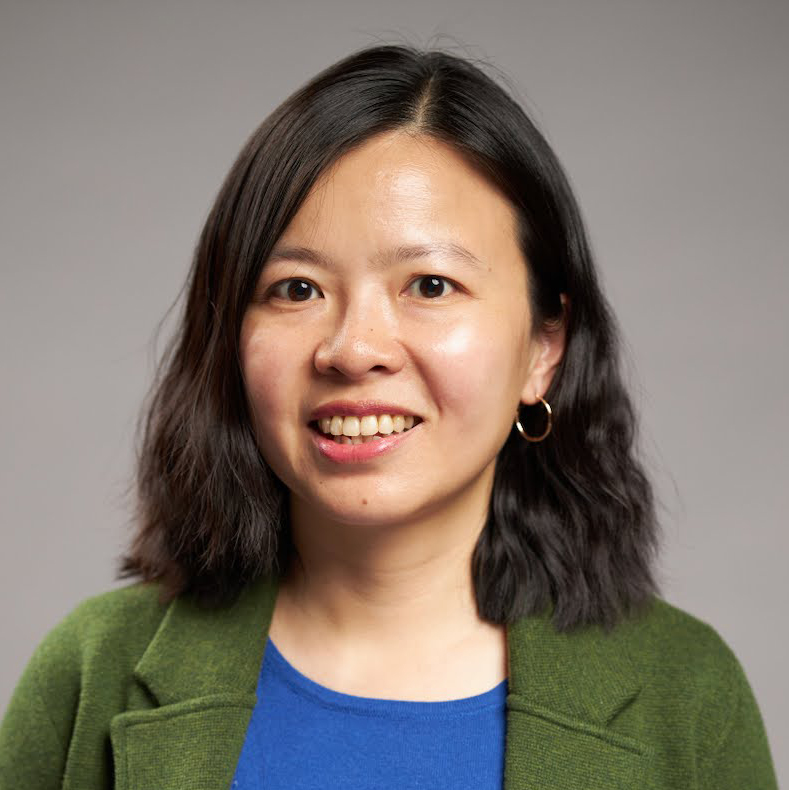
Carole-Jean Wu
Director of AI Research, Meta
Carole-Jean Wu is a Director of AI Research at Meta, where she leads the Systems and Machine Learning Research team. She is a founding member and a Vice President of MLCommons — a non-profit organization that aims to accelerate machine learning for the benefit of all. Before Meta/Facebook, she was an associate professor at Arizona State University. Wu earned her M.A. and Ph.D. from Princeton and a B.Sc. from Cornell University. Wu’s expertise sits at the intersection of computer architecture and machine learning. Her work spans data center infrastructures and edge systems by pathfinding and tackling system challenges to enable efficient, scalable, and environmentally sustainable AI technologies. Wu’s work has been recognized with several awards, including IEEE Micro Top Picks and ACM/IEEE Best Paper Awards. Her work in sustainability has influenced at-scale adoption for hyperscalar datacenter infrastructures.